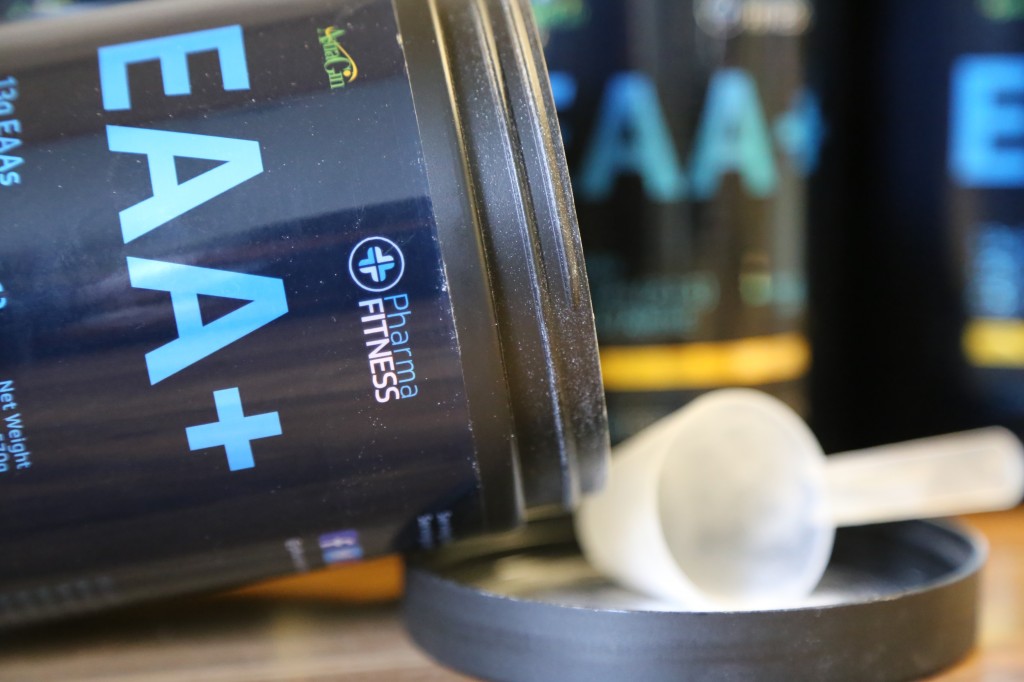Amino acids, often referred to as the building blocks of proteins, are compounds that play many critical roles in your body.
They are needed for vital processes like the building of proteins and the synthesis of hormones and neurotransmitters.
Some may also be taken in supplement form for a natural way to boost athletic performance or improve mood.
They are categorised as essential or nonessential depending on several factors.
This article tells you everything you need to know about essential amino acids, including how they function, possible food sources, and the benefits of taking a supplement.
What Are Essential Amino Acids?
Amino acids are organic compounds composed of nitrogen, carbon, hydrogen, and oxygen, along with a variable side chain group.
Your body needs 20 different amino acids to grow and function properly. Though all 20 of these are important for your health, only nine amino acids are classified as essential.
These are histidine, isoleucine, leucine, lysine, methionine, phenylalanine, threonine, tryptophan and valine.
Unlike nonessential amino acids, essential amino acids can’t be made by your body and must be obtained through your diet.
The best sources of essential amino acids are animal proteins like meat, eggs and poultry.
When you eat protein, it’s broken down into amino acids, which are then used to help your body with various processes such as building muscle and regulating immune function.
Their Roles in Your Body
The nine essential amino acids perform a number of important and varied jobs in your body:
Phenylalanine: Phenylalanine is a precursor for the neurotransmitters tyrosine, dopamine, epinephrine and norepinephrine. It plays an integral role in the structure and function of proteins and enzymes and the production of other amino acids (4).
Valine: Valine is one of three branched-chain amino acids, meaning it has a chain branching off to one side of its molecular structure. Valine helps stimulate muscle growth and regeneration and is involved in energy production (5).
Threonine: Threonine is a principal part of structural proteins such as collagen and elastin, which are important components of the skin and connective tissue. It also plays a role in fat metabolism and immune function (6).
Tryptophan: Though often associated with causing drowsiness, tryptophan has many other functions. It’s needed to maintain proper nitrogen balance and is a precursor to serotonin, a neurotransmitter that regulates your appetite, sleep and mood (7).
Methionine: Methionine plays an important role in metabolism and detoxification. It’s also necessary for tissue growth and the absorption of zinc and selenium, minerals that are vital to your health (8).
Leucine: Like valine, leucine is a branched-chain amino acid that is critical for protein synthesis and muscle repair. It also helps regulate blood sugar levels, stimulates wound healing and produces growth hormones (9).
Isoleucine: The last of the three branched-chain amino acids, isoleucine is involved in muscle metabolism and is heavily concentrated in muscle tissue. It’s also important for immune function, hemoglobin production and energy regulation (10).
Lysine: Lysine plays major roles in protein synthesis, hormone and enzyme production and the absorption of calcium. It’s also important for energy production, immune function and the production of collagen and elastin (11).
Histidine: Histidine is used to produce histamine, a neurotransmitter that is vital to immune response, digestion, sexual function and sleep-wake cycles. It’s critical for maintaining the myelin sheath, a protective barrier that surrounds your nerve cells (12).
As you can see, essential amino acids are at the core of many vital processes.
Though amino acids are most recognized for their role in muscle development and repair, the body depends on them for so much more.
That’s why essential amino acid deficiencies can negatively impact your entire body including your nervous, reproductive, immune and digestive systems.
Health Benefits of Supplementing With Essential Amino Acids
While essential amino acids can be found in a wide array of foods, taking concentrated doses in supplemental form has been linked to several health benefits.
May Help Improve Mood and Sleep
Tryptophan is needed for the production of serotonin, a chemical that acts as a neurotransmitter in your body. Serotonin is an essential regulator of mood, sleep and behaviors.
While low serotonin levels have been linked to depressed mood and sleep disturbances, several studies have shown that supplementing with tryptophan can reduce symptoms of depression, boost mood and improve sleep (13, 14, 15, 16, 17).
A 19-day study in 60 older women found that 1 gram of tryptophan per day led to increased energy and improved happiness, compared to a placebo (18).
Can Prevent Muscle Loss
Muscle loss is a common side effect of prolonged illnesses and bed rest, especially in older adults.
Essential amino acids have been found to prevent muscle breakdown and preserve lean body mass.
A 10-day study in 22 older adults on bed rest showed that those who received 15 grams of mixed essential amino acids maintained muscle protein synthesis, while the process decreased by 30% in the placebo group (22).
Essential amino acid supplements have also been found to be effective in preserving lean body mass in elderly people and athletes (23, 24).
Foods that contain Essential amino acids
Foods that contain all nine essential amino acids are referred to as complete proteins.
Complete protein sources include:
Meat
Seafood
Poultry
Eggs
Dairy Products
Soy, quinoa and buckwheat are plant-based foods that contain all nine essential amino acids, making them complete protein sources as well.
Other plant-based sources of protein like beans and nuts are considered incomplete, as they lack one or more of the essential amino acids.
However, if you’re following a plant-based diet, you can still ensure proper intake of all essential amino acids as long as you eat a variety of plant proteins each day.
For example, choosing a variety of incomplete proteins such as beans, nuts, seeds, whole grains and vegetables can ensure that your essential amino acid needs are met, even if you choose to exclude animal products from your diet.
Summary
There are nine essential amino acids, which you must get through your diet: histidine, isoleucine, leucine, lysine, methionine, phenylalanine, threonine, tryptophan and valine.
Essential amino acids are vital for functions such as protein synthesis, tissue repair and nutrient absorption.









